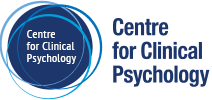Depression is a common mental health condition that affects millions of people worldwide. It is a mood disorder and typical symptoms include feelings of sadness, hopelessness, and a loss of interest in normally enjoyed activities. However, not everyone with depression will have the same experience. One popular notion is irritable depression. But is this a diagnosis? In this blog, we will discuss irritable depression, how irritability might relate to depression, and why it’s important to seek help.
What is an irritable mood?
Irritability entails a range of experiences characterized by feelings of frustration. It can include agitation, racing thoughts, incessant talking, snapping at people, being annoyed at minor things, outbursts like complaining or shouting, and mood swings. It can also look like fidgeting, restlessness, pacing, hand-wringing, and nail-biting. People are irritable for different reasons. Some possibilities include: being in pain; suffering from anxiety; feeling hyper aroused due to unprocessed trauma; having difficulties dealing with anger; or experiencing biological changes such as hormonal fluctuations; and as part of depression. Diagnostically, an irritable mood is a very non-specific symptom, and can suggest vastly different underlying issues.
Is irritable depression a type of depression?
The The diagnostic manual used by many psychologists, the DSM-5 TR presents the following subcategories of depressive disorders:
- Disruptive mood dysregulation disorder
- Major depressive disorder
- Persistent depressive disorder
- Premenstrual dysphoric disorder
- Substance/medication-induced depressive disorder
- Other specified depressive disorder and unspecified depressive disorder
In adult depression, irritable mood is a feature that overlaps many diagnostic categories, but it is not a distinct subtype of depression.
In youth depression, irritability might be more particularly recognised by clinicians as a prominent symptom. For children and adolescents to be diagnosed with depression, the criteria of low mood is not required if the dominant mood is irritable (American Psychiatric Association, 2022). Depression for young people may also look like being extremely sensitive, clingy, worrying, physical aches and pains, poor performance, school refusal, use of alcohol or recreational drugs, and self-harm behaviours.
How might irritability be linked to depression?
As depression is a mood disorder, people with depression struggle to regulate their emotions. They may feel triggered by a range of internal and external events, which result in an irritable mood. Internally, depressive thoughts tend to be pessimistic and negatively biased. For example, thoughts such as “I should get everything right, I always mess things up.” can cause the depressed person to be irritable with themselves and the world around them.
Externally, when things (like socializing) become overwhelming, the depressed individual may also feel agitated, and more so if they also negatively judge themselves for it. For example, being angry with themselves because they “should be able to just go out like they used to”. Or being angry with others because “they don’t understand”. The person might feel a worsening of their irritability if depression is left unmanaged. Some researchers have suggested that whilst the diagnostic significance is unclear for irritability, it might be a useful marker of overall depression severity and chronicity, comorbidities, and suicidality (Perlis et la., 2009; Kovess-Masfety et al., 2013).
The association between irritability and depression can also be influenced by other risk factors related to family history, genetic or environmental factors, childhood temperaments, personality styles, and negative parenting style (Vidal-Ribas & Stringaris, 2021).
Why it is important to seek help
While it may seem like just a bad mood or an off day, or just the result of being a bit of a perfectionist; irritability with underlying depression can be a serious condition that significantly impacts a person’s quality of life and relationships. Seeking help early may also prevent a cascade of risky, impulsive, or aggressive behaviours that could further complicate a person’s mental illness.
The good news is that the irritability that may occur with depression is treatable with the right support and care. The Centre for Clinical Psychology offers evidence-based psychological therapies for a wide range of mental health issues, including depression with irritability. If you or someone you know is experiencing depression or is experiencing irritability, we recommend booking an appointment by calling 03 9077 0122 or booking online at https://ccp.net.au/booking/. Remember, seeking help for mental health issues is a sign of strength, not weakness.
References
American Psychiatric Association. (2022). Diagnostic and statistical manual of mental disorders (5th ed., text rev.). doi.org/10.1176/appi.books.9780890425787
Kovess‐Masfety, V., Alonso, J., Angermeyer, M., Bromet, E., De Girolamo, G., De Jonge, P., & Kessler, R. C. (2013). Irritable mood in adult major depressive disorder: results from the world mental health surveys. Depression and Anxiety, 30, 395-406. doi:10.1002/da.22033
Perlis, R. H., Fava, M., Trivedi, M. H., Alpert, J., Luther, J. F., Wisniewski, S. R., & John Rush, A. (2009). Irritability is associated with anxiety and greater severity, but not bipolar spectrum features, in major depressive disorder. Acta Psychiatrica Scandinavica, 119, 282-289. doi: 10.1111/j.1600-0447.2008.01298.x
Vidal-Ribas, P., & Stringaris, A. (2021). How and why are irritability and depression linked?. Child and Adolescent Psychiatric Clinics, 30, 401-414. doi: 10.1016/j.chc.2020.10.009






